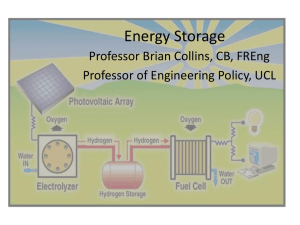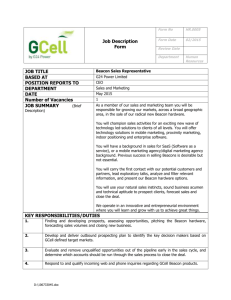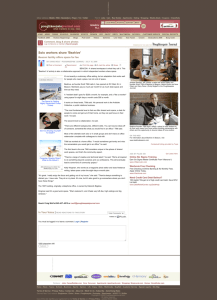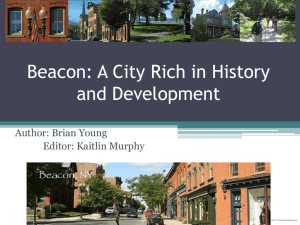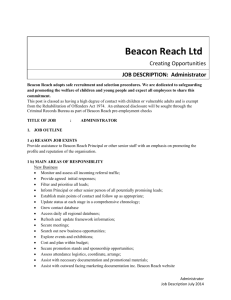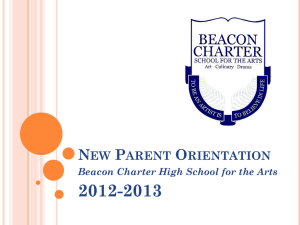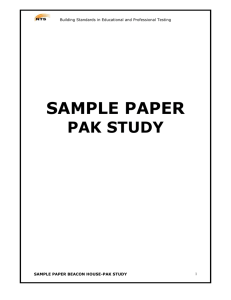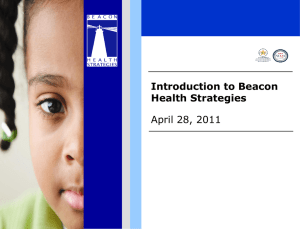Tuesday August 19 th - CREATE for STEM Institute at MSU
advertisement
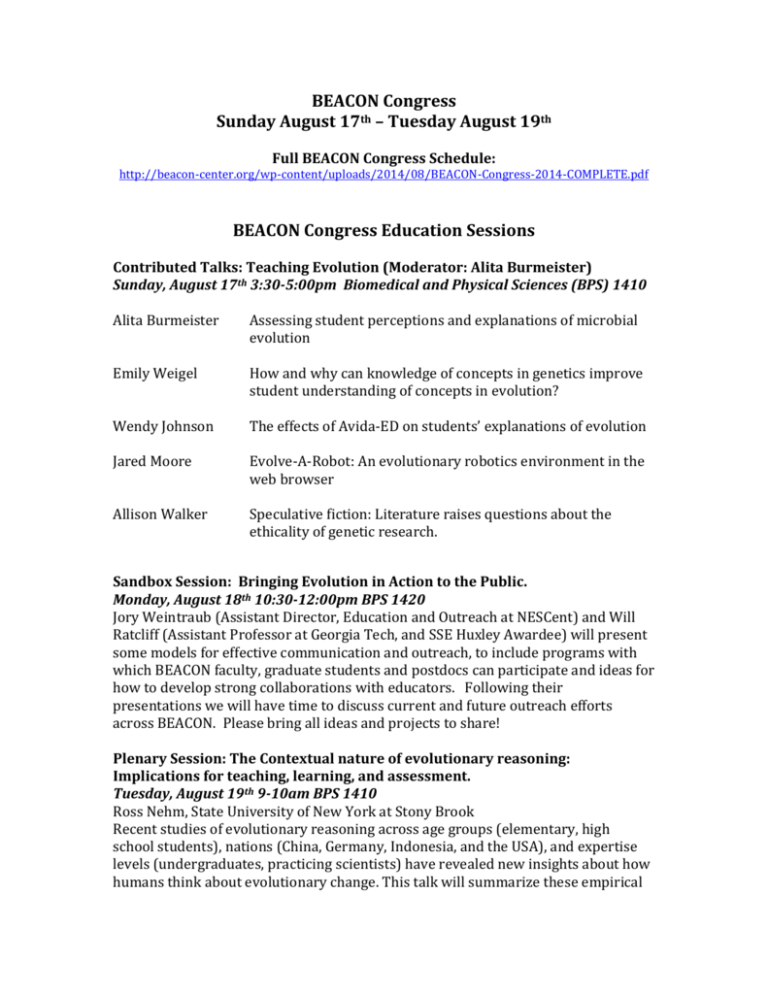
BEACON Congress Sunday August 17th – Tuesday August 19th Full BEACON Congress Schedule: http://beacon-center.org/wp-content/uploads/2014/08/BEACON-Congress-2014-COMPLETE.pdf BEACON Congress Education Sessions Contributed Talks: Teaching Evolution (Moderator: Alita Burmeister) Sunday, August 17th 3:30-5:00pm Biomedical and Physical Sciences (BPS) 1410 Alita Burmeister Assessing student perceptions and explanations of microbial evolution Emily Weigel How and why can knowledge of concepts in genetics improve student understanding of concepts in evolution? Wendy Johnson The effects of Avida-ED on students’ explanations of evolution Jared Moore Evolve-A-Robot: An evolutionary robotics environment in the web browser Allison Walker Speculative fiction: Literature raises questions about the ethicality of genetic research. Sandbox Session: Bringing Evolution in Action to the Public. Monday, August 18th 10:30-12:00pm BPS 1420 Jory Weintraub (Assistant Director, Education and Outreach at NESCent) and Will Ratcliff (Assistant Professor at Georgia Tech, and SSE Huxley Awardee) will present some models for effective communication and outreach, to include programs with which BEACON faculty, graduate students and postdocs can participate and ideas for how to develop strong collaborations with educators. Following their presentations we will have time to discuss current and future outreach efforts across BEACON. Please bring all ideas and projects to share! Plenary Session: The Contextual nature of evolutionary reasoning: Implications for teaching, learning, and assessment. Tuesday, August 19th 9-10am BPS 1410 Ross Nehm, State University of New York at Stony Brook Recent studies of evolutionary reasoning across age groups (elementary, high school students), nations (China, Germany, Indonesia, and the USA), and expertise levels (undergraduates, practicing scientists) have revealed new insights about how humans think about evolutionary change. This talk will summarize these empirical findings, and discuss their implications for biology teaching, learning, and assessment. Tutorial: Increase Your Broader Impacts with Data Nuggets. Tuesday, August 19th 10:30-12:00pm BPS 1441 BEACON Offices, Seminar Room Tuesday, August 19th 1:30-3:00pm BPS 1441 BEACON Offices, Seminar Room Elizabeth Shultheis and Melissa Kjelvik. Do you need to increase broader impacts for your research? Want to further develop your communication skills? Come to our hands-on workshop at BEACON Congress and create a Data Nugget based on your research! Data Nuggets are short worksheets that emphasize developing quantitative skills for K-16 students. They are based on recent and ongoing research, bringing cutting edge research into the classroom and helping scientists share their work with broad audiences. The standard format of each Nugget provides a brief background to a researcher and their study system along with a dataset from their research. Students are then challenged to answer a scientific question, using the dataset to support their claim, and are guided through the construction of graphs to facilitate data interpretation. We are currently seeking to add to our collection of Data Nuggets to increase the diversity of topics covered and showcase science done all over the country. See examples of Data Nuggets and learn more about our project at http://datanuggets.org. During the workshop we will walk you through our template and help you identify a proper dataset, scientific question, and hypothesis for students of many ages. In order to finish a Nugget within the allotted time, participants must come to the workshop with a dataset already selected. Sandbox Session: Priorities in Evolution Education. Tuesday, August 19th 1:30-3:00pm BPS 1415 Louise Mead Next Generation Science Standards place evolution as one of four core concepts, and new “science practices” stress inquiry and defending claims using evidence. However, a recent report suggests intermediate levels of understanding of science and evolution and low levels of evolution acceptance among America’s educators of prospective teachers. How can BEACON take a lead in developing materials and training teachers to meet this next generation of STEM education? Is there a place for BEACON education in influencing change in undergraduate courses as well? Let’s identify a plan of action and develop clear goals for addressing these issues.
